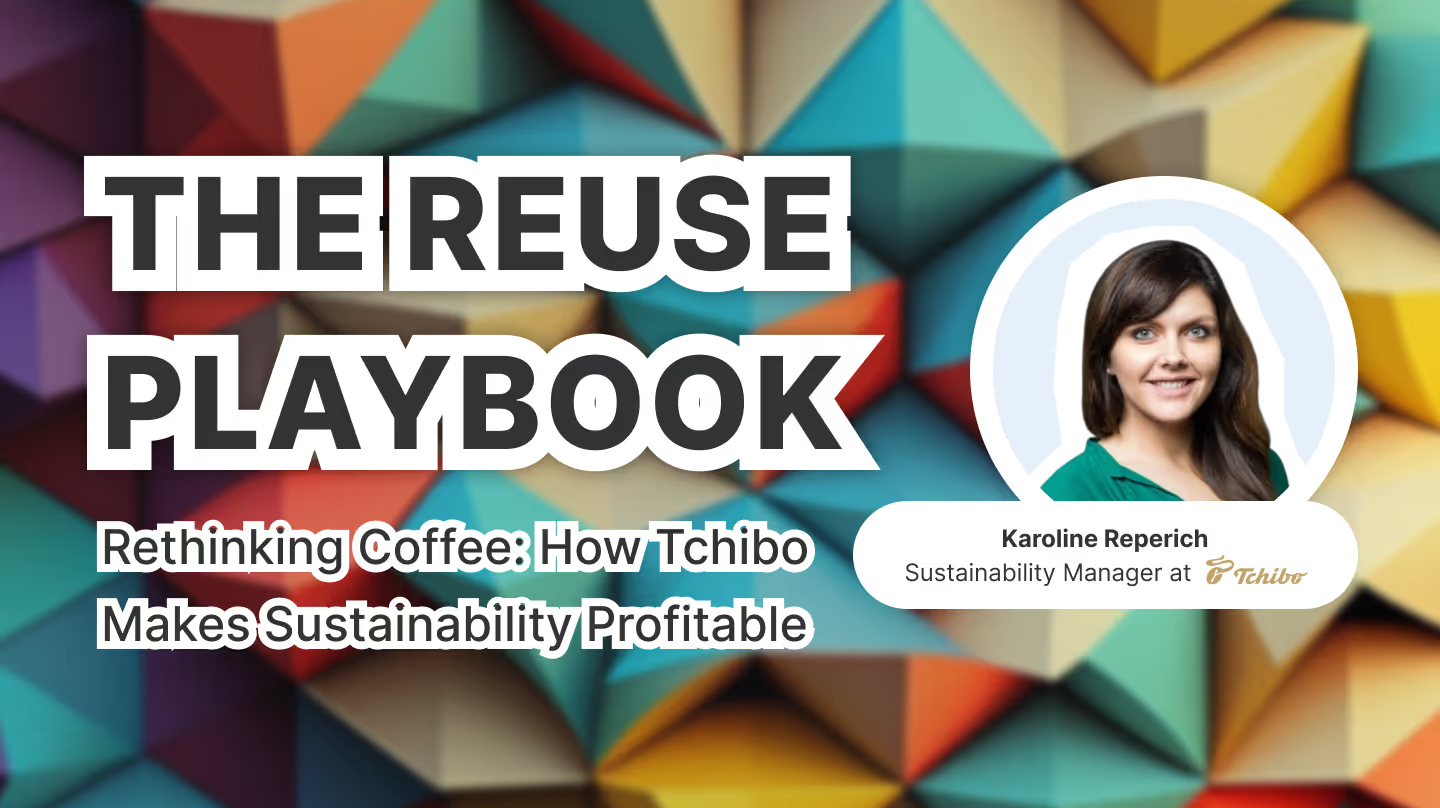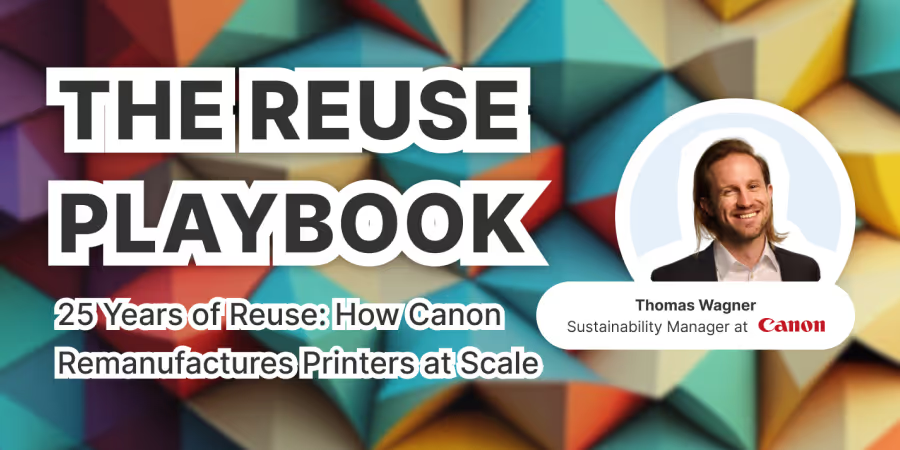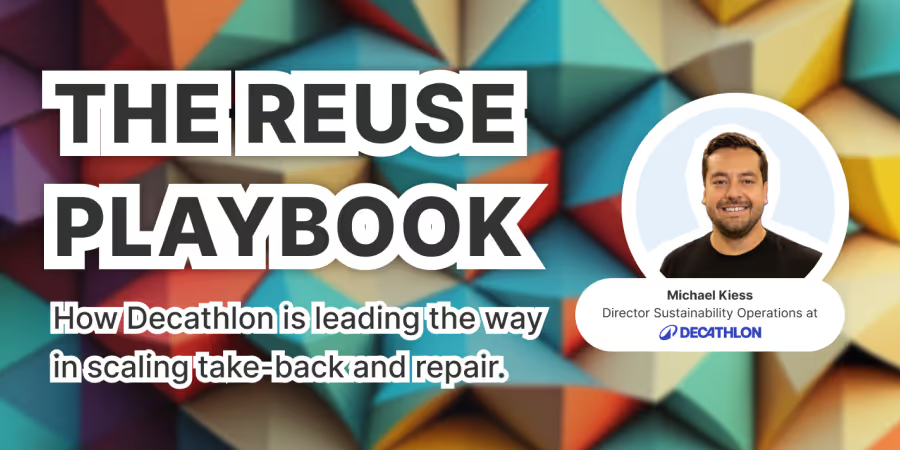In episode #3 of The Reuse Playbook, we sat down with Karoline Reperich, Sustainability Manager and part of the Circular Solutions Lab at Tchibo, a team that turns bold sustainability ideas into real business.
Together, we explored how Tchibo built its first trade-in and refurbished program for automatic coffee machines with koorvi, connecting the entire journey from buy-back to resale.
What stood out most? The spirit of collaboration across departments, the attention to detail in shaping the intake funnel, and the courage to test, learn, and improve quickly. A pilot that started small and now runs every day, proving how circularity can scale when quality, data, and teamwork come together.

Our Learnings and Key Takeaways
🧩 Reuse is a company project, not a side quest
Accounting, tax, inventory, service, ecommerce, and repair must move in lockstep. Even in a pilot, you’ll face state changes (purchase → refurbishment → sale) and some manual postings before full integration. Map every interface early.
🔎 Build the intake funnel like your margin depends on it (it does)
Self-reported “condition tables” are a start, but guided questions (age, weekly use) outperform raw counters like “cups brewed.” Only buy what you can profitably refurbish.
🧪 Pilot = permission to learn
Iterate on key levers such as voucher values and measure success per unit — refurb costs, return rates, and grade mix. Start tracking service liabilities for refurbished products early.
🛡️ Brand trust turns “used” into “reassured”
Tchibo sells in two transparent grades, adds warranty and a clear “Tchibo Refurbished” label. The result: steady buy- and sell-side transactions and quick restocks.
📬 Own the return flow with owned channels
Reaching out to past machine buyers via email is an efficient way to source devices. On-site placements educate customers that Tchibo gives their coffee machine a second life.
🧰 Sell convenience, not classifieds
Position the offer as a brand-backed service with shipping, refurbishment, and warranty — a trustworthy alternative to peer-to-peer listings. Hygiene and quality assurance matter especially for kitchen products.
🎯 Tie it to strategy, not just a shop page
Beyond unit economics, the program drives customer retention and segment reach — and feeds strategic alignment with core product teams. Extended Producer Responsibility (EPR) will soon make this standard.
🚀 Start narrow, scale smart
Pick a category with strong repair capabilities and tested longevity. Blueprint the process flow, prove the mechanics, then expand step by step.
5 Personal Questions for Karoline Reperich
To wrap up, we wanted to know: Who’s behind all those pilots, processes, and take-back journeys? Five quick questions, five honest answers.
1. Aside from Tchibo, is there a company you think really gets it?
→ “Many — Tony’s Chocolonely, VAUDE, Manufaktum, Everdrop … there are lots of frontrunners.”
Karoline doesn’t believe in lone heroes when it comes to circularity. She sees a growing ecosystem of brands that question business as usual — from fair chocolate to outdoor gear. What they all share: consistency, courage, and transparency.
2. What sustainability buzzword do you think is completely overrated?
→ “‘Nachhaltigkeit’ (sustainability) itself — I barely use the word anymore.”
For Karoline, the term has become too broad to mean much. Instead, she prefers talking about responsibility, impact, and quality — things that can be measured, not just marketed.
3. What won’t work anymore in your industry five years from now?
→ “The current level of manufacturer responsibility — it must (and will) go further.”
She’s convinced that future regulation will demand more — not just in recycling quotas, but in real ownership for products throughout their lifecycle. Brands that prepare now will turn compliance into competitive advantage.
4. What tool or app do you absolutely rely on in your daily life?
→ “Microsoft Teams — with it, everything moves fast.”
A very Tchibo answer: practical, efficient, and grounded in teamwork. With so many departments involved in circular projects, clear communication isn’t a nice-to-have — it’s survival.
5. What sparks new ideas for you?
→ “Staying alert to everyday life — a coffee on the kitchen bench, looking outside, clearing the head.”
Karoline’s creativity rarely strikes at the desk. It’s in the quiet moments — making coffee, observing daily routines — where she connects dots and sees new possibilities.
🎧 Curious to hear the full story? This recap is based on our live conversation with Karoline Reperich.



